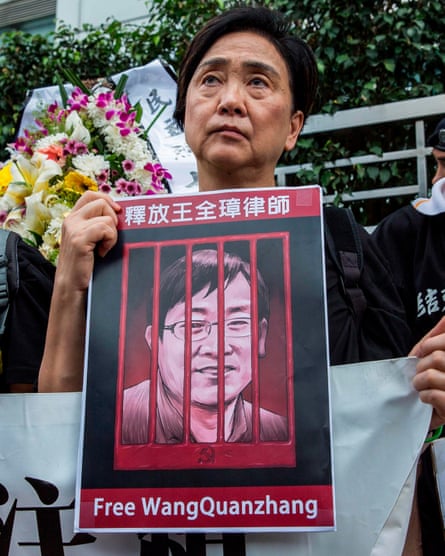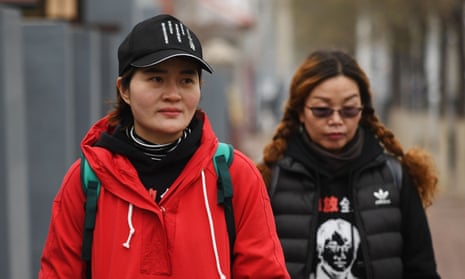The wife of a detained Chinese human rights lawyer who has embarked on a 100-kilometre march to highlight his plight says she does not even know if he is still alive.
Wang Quanzhang, who defended political activists and victims of land seizures, has had no contact with the outside world since he disappeared in a 2015 police sweep. He has since been charged with “subversion of state power” but authorities have blocked lawyers from visiting him.
“Maybe something horrible happened to him in jail and that is why authorities don’t want anyone to find out,” his wife Li Wenzu said. “It’s been 1,000 days. I don’t know if he is alive or dead.”
Li and a small group of supporters set off on Wednesday on a march from Beijing to the “no. 2 detention centre” in the north-eastern city of Tianjin, where officials last said he was being held. They plan to reach Tianjin by next Friday.
“We want to see the president of the court,” Li said. “We want to see the presiding judge. It would be good if someone came out to tell us what Wang Quanzhang’s case was all about. If he committed no sin, they should release him.”
For nearly three years, Li has made dozens of freedom of information requests to police – which have been sent back unanswered – and she has visited the complaints office of the supreme people’s court in Beijing weekly to no avail. Instead of answers, she has been put under constant police surveillance.

In July 2015, more than 200 Chinese human rights lawyers and activists were detained or questioned in the largest clampdown on the legal profession in recent history.
The majority were released on bail, but a handful – including prominent lawyers Xie Yang and Li Heping – were convicted of various crimes and sentenced to up to seven years in prison. Wang is the last person in the so-called “709 crackdown” to remain in legal limbo. No trial date has even been announced. He is the last person in the so-called “709 crackdown” to remain in legal limbo.
When AFP called the Tianjin no. 2 detention centre on Thursday, a man who picked up said: “You should not ask about this matter.”
Frances Eve, a researcher for the charity Chinese Human Rights Defenders, said the tireless campaigning of family members of detained lawyers had drawn international attention to China’s “lies” about its legal system.
“Li shouldn’t be forced to wait years and walk miles to receive basic information about her husband’s status,” Eve said.
A government-appointed lawyer said he met Wang in July last year, but his family has disputed the claim, saying there is no evidence such a meeting took place.
